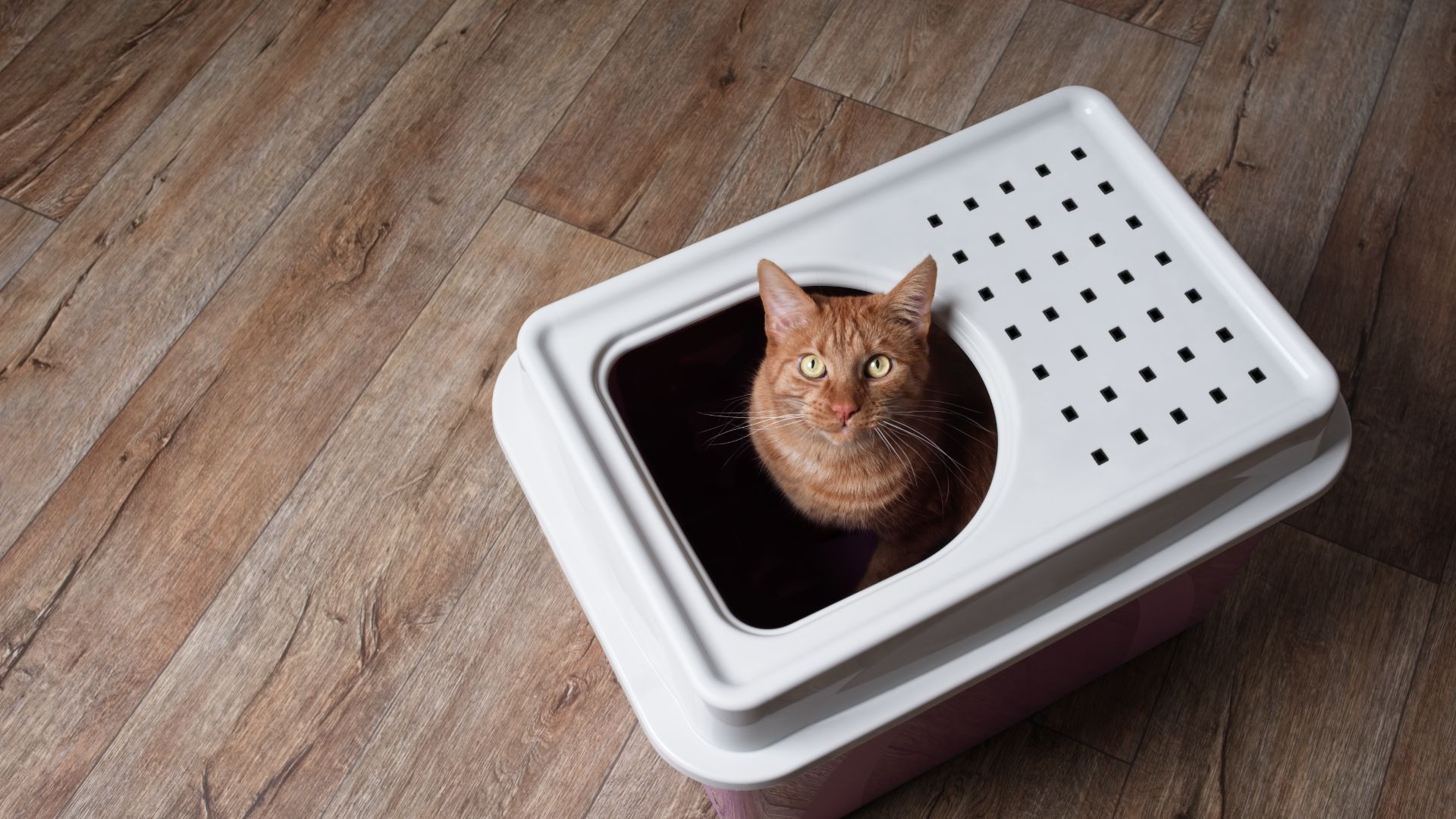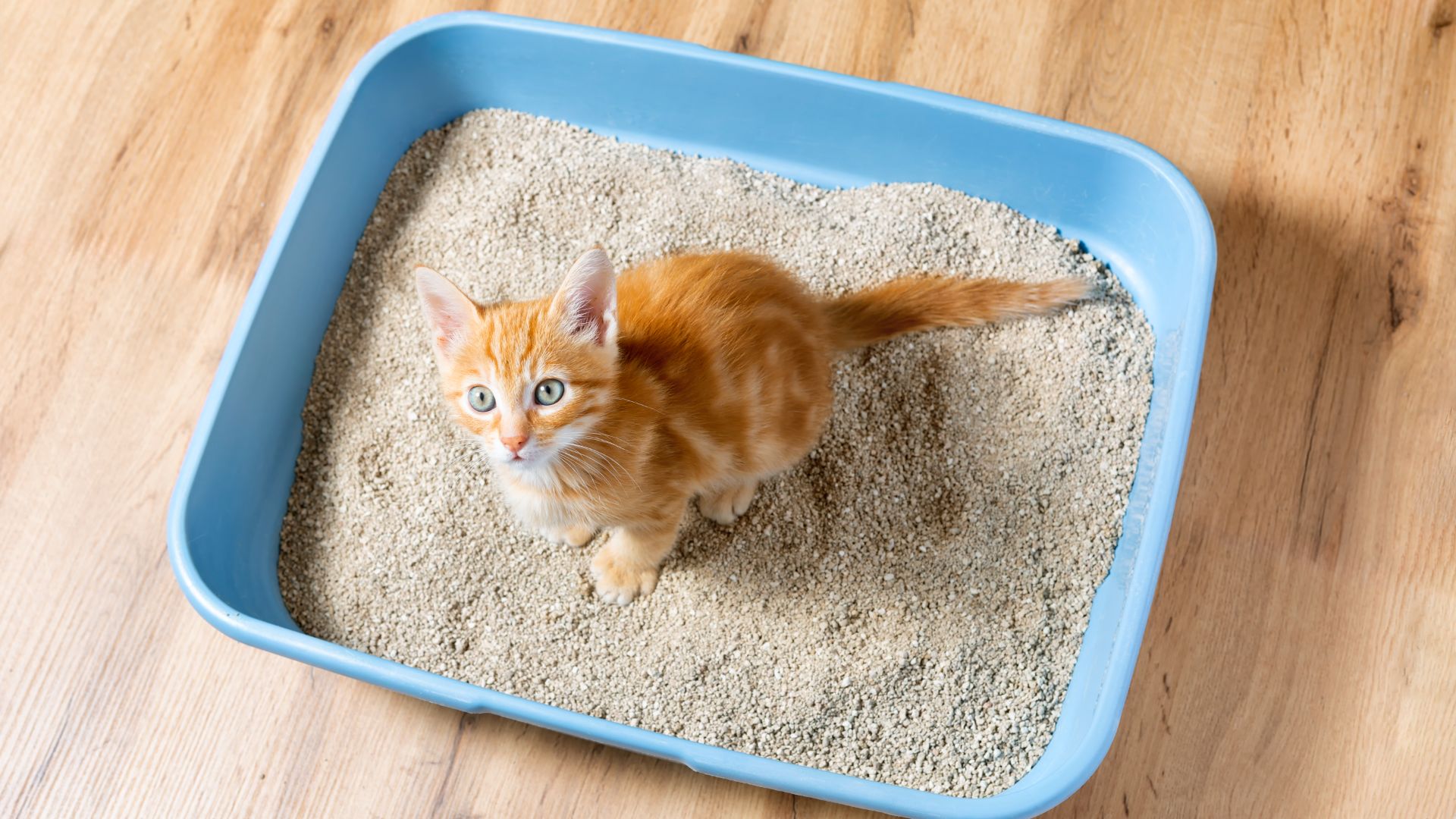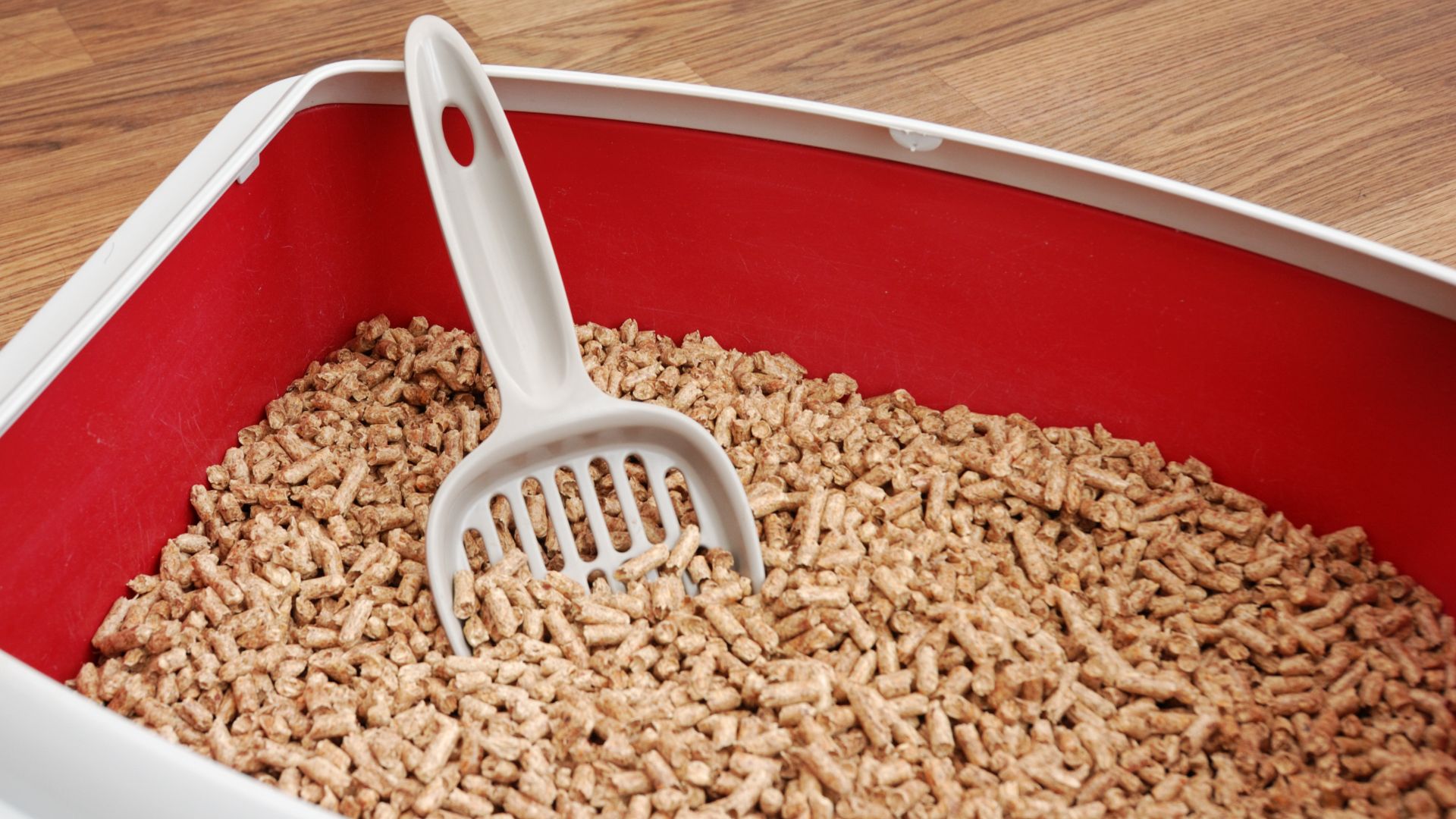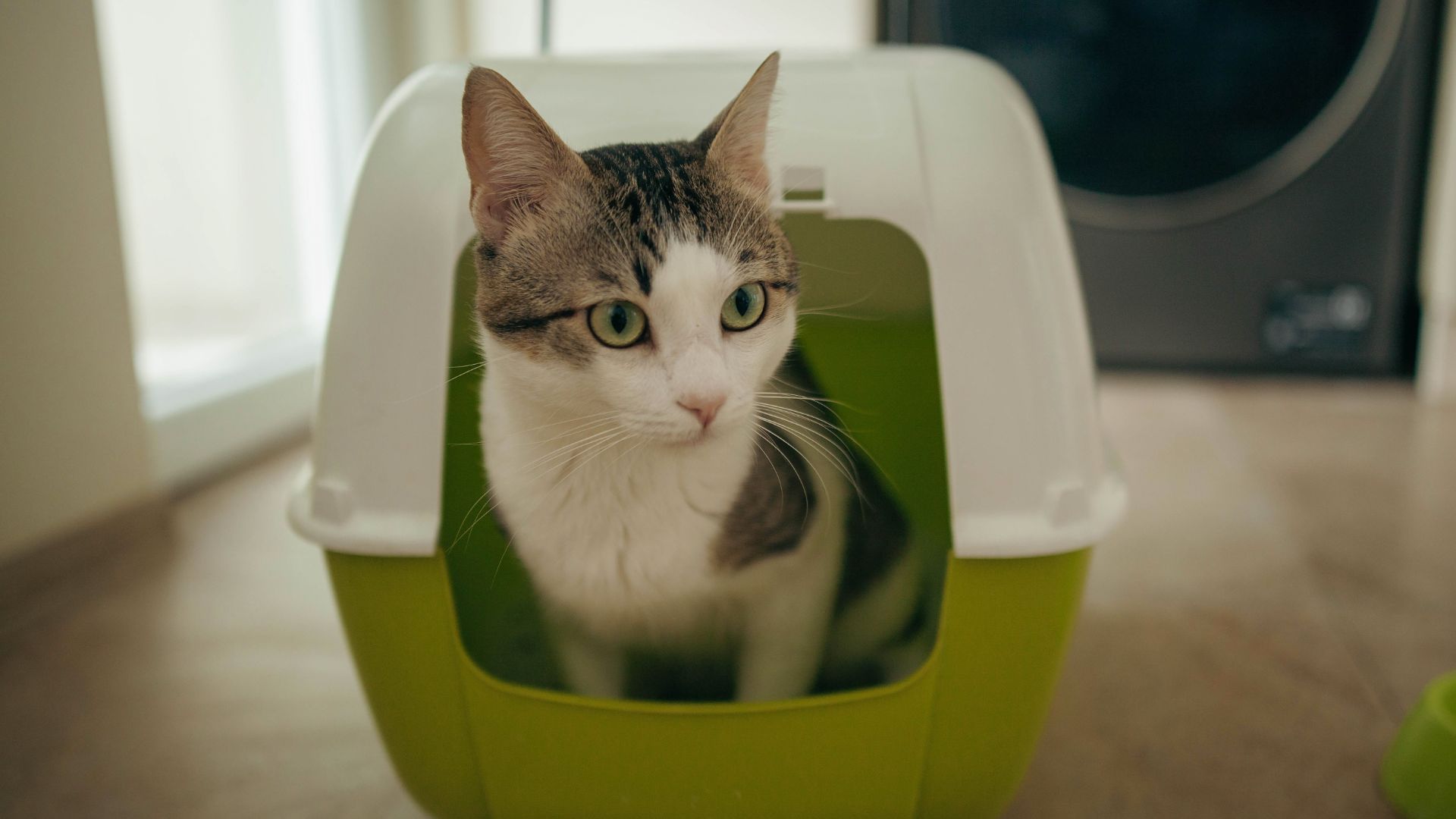
While your cat peeing outside the litter box can be unpleasant, it is a common problem. Many pet owners wonder how to discipline a cat for peeing outside the litter box, but it's important to identify the root cause of this behavior instead.
Rest assured that this is not a form of ‘dirty protest’ and your cat is not peeing outside of the litter box out of spite. Any form of punishment is guaranteed to make the behavior worse.
Commonly suggested deterrents, such as water pistols or tin foil, are only likely to divert the behavior elsewhere. There will always be an underlying reason, either medical or behavioral, for your cat peeing outside the litter box.
This article will explore why cats inappropriately urinate around the home and what you can do to stop the behavior from occurring: from creating a safe environment to the consideration of medical problems.
Why is my cat suddenly peeing outside the litter box?
If you find your cat peeing outside the litter box, for example on the carpet or in the bath, this is known as ‘inappropriate elimination’. If your cat won't pee in the litter box but will poop there, then the litter box itself is unlikely to be the issue. So, the cause can either be medical or behavioral.
1. Cystitis
Firstly, cystitis is one of the most common causes of a cat urinating outside the box. Cystitis is inflammation of the bladder caused by stress or, less commonly, infection. As with humans, UTIs in cats are very painful and also result in an urge to pee frequently.
Any condition causing your cat to drink more than usual, such as kidney disease or diabetes, can also lead to inappropriate urination. Because your cat is drinking more than usual, they won’t be able to last as long between pees. Usually cats will only toilet in a clean litter tray, but when they are passing urine often the litter tray won’t stay clean for long! So, they will choose to pee elsewhere, or they may not reach the litter box if the urge is too great.
2. Arthritis
Any condition causing pain, such as osteoarthritis in cats, can also cause a cat to pee outside the litter box. Accessing the litter tray may be uncomfortable or it may be too far to walk.
While you may think your cat is fine, unfortunately cats are very good at hiding illness or pain. This is because they are a prey species, as well as being predators. Which means their natural instinct is to try to hide any weakness, to avoid being preyed upon. So, peeing around the home can be an early sign of pain or illness. This means it’s important to have your cat checked by your vet if they start peeing outside the litter tray.
3. Stress or anxiety
Stress or anxiety in cats is another common cause for cats peeing outside the litter box. Cats can be very unsettled by all sorts of things, including:
- strangers in the home
- new pets
- a new baby
- building works
- a change in cat litter type
- a new cat in the area
- a house move
Stress can cause a cat to mark their territory, by ‘spraying’ urine. It can also cause cystitis, or an inflamed bladder, making it painful to pee and increasing the urge to pee.
How to discipline a cat for peeing outside the litter box
Worried cat owners often wonder how to discipline a cat for peeing outside the litter box. The easy answer is, you don’t! Your cat isn’t peeing outside the litter box out of spite, and they aren’t being naughty.
There is an underlying medical or emotional problem that needs to be addressed. If the underlying issue is not treated, then inappropriate elimination will continue or worsen.
How to stop your cat from peeing on the carpet

1. Schedule a check-up with your vet
The first thing you should do is book an appointment with your vet. They will give your cat a thorough check over and likely test a urine sample.
Following on from this, they may need to run some blood tests. They can also advise you on any behavioral problems, or refer you to a qualified behaviorist if needed.
2. Look to break the habit
Once your cat has urinated in a specific spot, they are more likely to keep going there due to the smell, even if the underlying problem has been resolved. You can buy special pet-safe enzymatic cleaners that remove the urine scent.
Try to keep your cat away from the area for a period of time, or try moving some furniture to cover the area for a while, to help break the habit. Perhaps consider looking into how to retrain a cat to use the litter box.
3. Clean your cat’s litter tray frequently
Make sure you clean your cat’s litter tray frequently. This means litter picking twice a day and a full clean at least weekly. You should have a minimum of one litter box per cat, plus one spare. This allows your cat a choice and also means one is more likely to be clean at any given time. We recommend reading our vet's guide on how to reduce cat litter smells.
Another thing to consider is alternative types of cat litter that your cat might prefer. That way, you can ensure you’re using the best cat litter for your feline friend.

4. Consider adding multiple litter boxes
For cats with diabetes or kidney disease, you may want extra litter boxes dotted around the house so they don’t get ‘caught short’. Check out our guide to the best cat litter boxes if you need to purchase more. And if you dread emptying them, we’ve also got a guide to the best automatic litter boxes that clean themselves!
5. Create a safe and quiet environment
Put the tray in a quiet location where your cat won’t be disturbed, away from their food and water bowls. Try to place the tray in a corner, so your cat can see what is happening around them without turning around. This makes them feel safe.
The litter tray should be large enough that your cat can turn around in it fully, so around 1.5 times the length of your cat. Most cats have a preference for whichever litter they were weaned on, so try to stick to one that they’ve used in the past.

6. Try a stress-relieving pheromone spray
You can purchase various stress-relieving pheromone sprays, plug-ins (like this one on Amazon) or natural supplements designed to ease stress. These can all be very beneficial, so ask your vet about the best one for your cat if you aren’t sure.
Do you have more cat litter questions? Check out our articles on how to litter train a kitten and how to stop a cat pooping outside the litter box.







